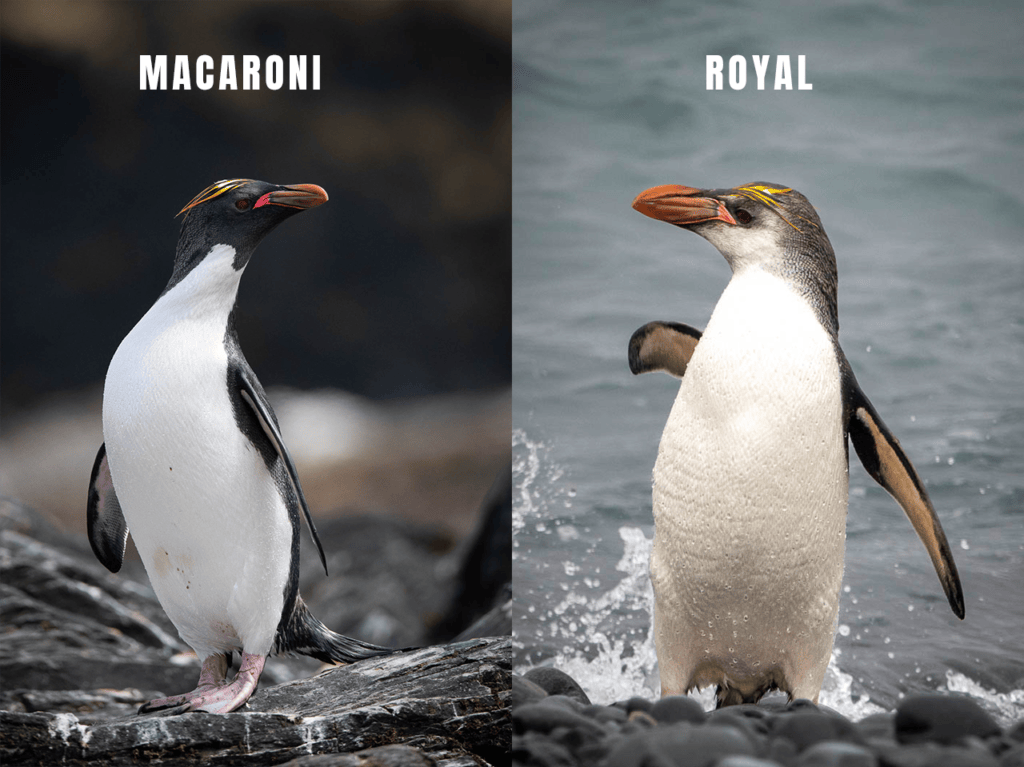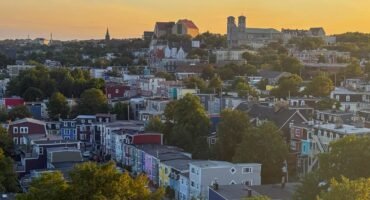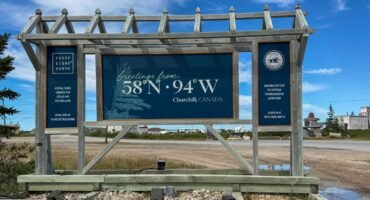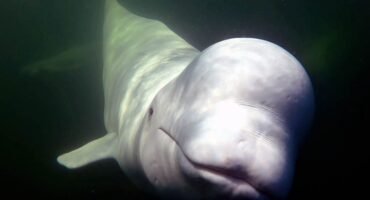
Discovering Macquarie Island
- Rediscovering New Zealand: An Expedition to the Subantarctic and South Island Adventures
- Our Adventure Begins in Queenstown
- A Day Trip to The Remarkables and Glenorchy
- Te Anu and Milford Sound
- An Overnight Cruise in Doubtful Sound with Fiordland Expeditions
- Our "Galapagos of the Southern Ocean" Expedition Officially Begins
- Embarkation Day: Setting Sail for New Zealand's Subantarctic Islands
- Navigating Rough Seas at the Snares
- A Day in the Auckland Islands
- Discovering Macquarie Island
- A Glorious Day at Sandy Bay
- Christmas at Sea and the Wonders of Campbell Island
- Exploring Enderby Island
- A Surprise Second Shot at the Snares
- From Disembarkation to Dunedin
- A Heli-hike on the Tasman Glacier in Aoraki/Mt. Cook
- Lake Tekapo Weather Woes
- Chasing Dusky Dolphins in Kaikoura
- Hiking the Abel Tasman Coast Track (well, part of it)



Our eyes were glued to the horizon as we approached. The wind was howling so we wondered if we would even be able to land. We’d heard horror stories of ships who traveled all this way only to be foiled by poor weather.


The Razorback viewpoint provided an interesting perspective of the isthmus, as well as the black sand beach and king penguin colony.



The sand on Macquarie Island is black because the island is composed entirely of oceanic crust and rocks from the mantle, and these rocks, when eroded, create dark-coloured sand. On the far left of this image you can see the small settlement which is home to the handful of researchers and rangers who live on the island.

Elephant seals go through a catastrophic moult annually, typically between December and January. During this period, they spend extended time on land, shedding their old fur and skin in large patches to allow for new growth. This moulting process is crucial for maintaining their overall health and insulation properties of their fur, but it looks very uncomfortable. As weaners, they are irresistibly cute, with big, soulful eyes and floppy bodies. As they grow, their appearance changes dramatically, and the males develop large noses known as proboscises which are used to amplify their vocalisations. Most of the ones we say on this day fell into the “still cute” category.







King penguins also undergo an annual catastrophic moult, where they shed all their feathers at once. I couldn’t tell if this was just beginning or had just ended, given only some of the birds in the colony looked scruffy. I’m not sure if this is a colony, where they breed and raise young, or just a resting spot.





While not as numerous as the king penguins, we also encountered gentoo penguins. I remember how to recognise gentoos because “gentoo” ends with an ‘o’ and they have orange feet and beaks. The juveniles have grey and white feathers, but the adults are black and white.




And JUST as we were waiting for a zodiac to take us back to the ship, we spotted new penguin species #3, the Royal Penguin.

Royal penguins are endemic to Macquarie Island, meaning they are found nowhere else in the world. They belong to the crested penguin group and are closely related to Macaroni penguins. While both species share a similar appearance, Royal penguins can be distinguished by their white or pale grey faces, in contrast to the black faces of Macaroni penguins. Here’s a quick comparison – left side is from Cooper Bay in South Georgia and the right is from today.

The guides assured us that we would see more royals (and they rarely guarantee anything so this was a good sign). Back on the ship, we hung everything to dry in the shower. I was amazed that our waterproof gear kept us mostly dry despite being up to our waists in water. I did miss the heated floors on the Greg Mortimer though.














We’re Andy and Jennifer—two former corporate executives who chose long ago to prioritise experiences over stuff while pursuing our passions for travel and photography. From the Arctic to Antarctica, and most places in between, we’ve captured the world through our lenses and love sharing those stories. Our careers gave us the means, but our purpose is inspiring others to explore and helping people create images they’re proud of.




